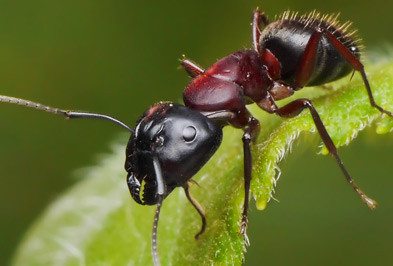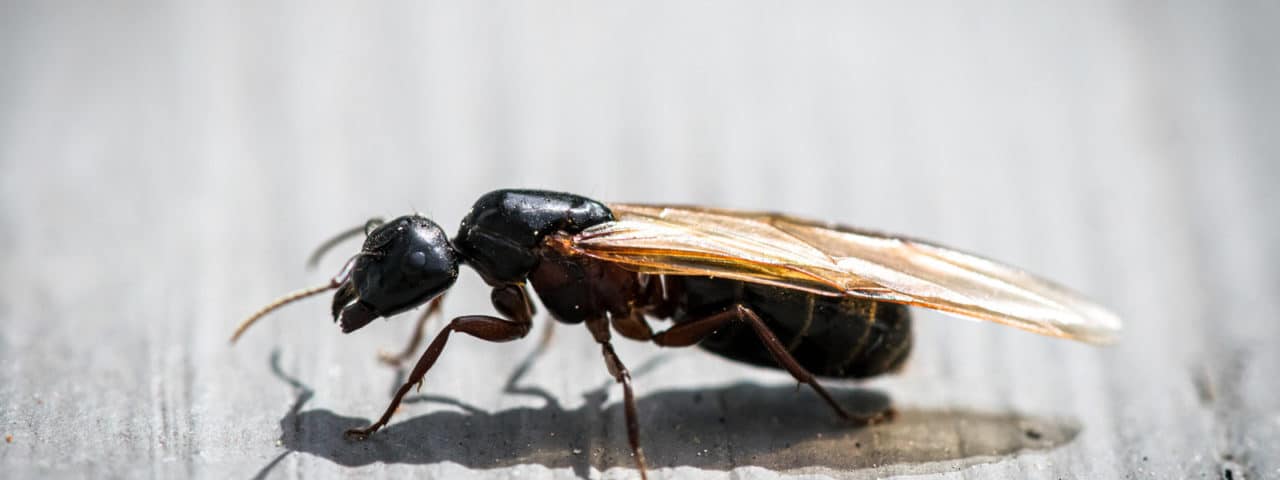Specialist Ant Control Services: Custom-made Therapies for Long-term Outcomes
Specialist Ant Control Services: Custom-made Therapies for Long-term Outcomes
Blog Article
Ecological Impact of Pest Control: Harmonizing Performance With Sustainability
The ecological effect of parasite control is an important issue that calls for a fragile equilibrium between accomplishing effectiveness in taking care of bugs and making sure sustainability of our environments. As we strive to shield our crops, homes, and health from the risks posed by parasites, the methods we use can accidentally hurt the environment. From using dangerous chemicals that permeate into our soil and water to the unintentional repercussions on non-target species, the effects of conventional parasite control methods are far-ranging. There are arising techniques that offer hope for a much more sustainable approach to pest administration. These services not just goal to address the instant pest problems yet additionally think about the long-term wellness of our world.
Dangerous Chemicals in Parasite Control
The utilization of damaging chemicals in bug control poses significant environmental and health and wellness threats that warrant cautious factor to consider and reduction techniques. Herbicides, pesticides, and chemicals are generally made use of to get rid of parasites, yet their extensive application can cause unexpected repercussions. These chemicals can contaminate dirt, water resources, and the air, influencing not only the targeted insects but additionally beneficial pests, wild animals, and humans.

To address these dangers, incorporated parasite management (IPM) methods are being advertised as a more lasting choice. IPM includes a combination of approaches such as organic control, environment adjustment, and the targeted usage of chemicals as a last option (ant control clemmons nc). By taking on an all natural technique to pest control, we can reduce the environmental and wellness effects connected with damaging chemicals while effectively taking care of pest populaces
Influence On Non-Target Species
Taking into consideration the unplanned repercussions of insect control methods, the effect on non-target types is a vital aspect that calls for detailed examination. While bug control steps aim to target details parasites, various other organisms in the community may be inadvertently affected. Non-target varieties, consisting of beneficial bugs, birds, animals, and even plants, can endure direct or indirect harm from chemical applications or biological control approaches.
Chemicals can have lethal or sub-lethal effects on non-target varieties. Insecticides created to combat a specific bug pest might damage pollinators like bees or all-natural predators such as ladybugs. Furthermore, chemical deposits can build up in the setting, affecting non-target microorganisms over time. Biological control agents, if not species-specific, can position risks to unplanned targets, interfering with the environmental equilibrium.
To mitigate the effect on non-target types, incorporated parasite monitoring (IPM) strategies that emphasize an alternative strategy to pest control are recommended. These methods focus on the usage of eco-friendly practices, minimizing injury to useful organisms while properly taking care of pest populations. Carrying out complete threat assessments and monitoring the end results of bug control initiatives are essential steps in protecting non-target types and advertising total ecological community health and wellness.
Soil and Water Contamination
Unintended ecological effects of bug control methods extend beyond impacting non-target types, with substantial implications for dirt and water contamination. Pesticides, herbicides, and chemical plant foods utilized in insect control can leach right into the soil and contaminate groundwater, posturing a hazard to both terrestrial and marine ecological communities. Soil contamination can interfere with the balance of bacteria necessary for vitamins and mineral cycling and plant growth, resulting in decreased soil fertility and productivity. Moreover, these chemicals can continue the setting for prolonged periods, gathering in the soil and potentially getting in the food cycle.
Water contamination is an additional important issue linked with bug control practices. Drainage from farming fields treated with pesticides can carry these chemicals into close-by water bodies, impacting water organisms and water quality. Impurities in water resources can have significant effects, influencing not only marine life however additionally human health with the intake of infected water or aquatic organisms. To alleviate dirt and water contamination from pest control tasks, incorporated pest administration methods that focus on sustainability and minimize chemical inputs are vital.
Air Pollution From Chemical Usage
Direct exposure to airborne pesticides during agricultural applications presents a considerable problem for air contamination control measures. They can volatilize right into the air and kind unstable organic substances (VOCs) and various other airborne pollutants when chemicals are sprayed onto plants - termite control services. These chemicals can contribute to the formation of ground-level ozone, a significant component of smoke that can have detrimental results on human health and wellness, plant efficiency, and general air quality. Additionally, pesticide drift, where pesticides are lugged by the wind to unexpected areas, can bring about the contamination of close-by ecosystems and water bodies.

Approaches for Lasting Pest Control
In the world of farming practices, carrying out lasting bug control techniques is extremely important for maintaining environmental balance and securing crop returns. Lasting pest control emphasizes using eco-friendly methods to manage insect populaces successfully while minimizing damage to non-target microorganisms and ecological communities. Integrated Pest Management (IPM) is a commonly taken on method that incorporates organic, social, physical, and chemical control approaches to accomplish long-term bug monitoring remedies.
One key technique in sustainable insect control is promoting biodiversity within agroecosystems. By boosting all-natural opponents of bugs, such as predators and parasitoids, farmers can decrease the requirement for synthetic chemicals. Crop turning and diversity are likewise effective methods to disrupt pest life process and produce less favorable conditions for parasites to thrive. Furthermore, using pest-resistant crop ranges and utilizing methods like catch cropping can help in reducing insect stress without depending heavily on chemical interventions. Inevitably, by integrating these lasting parasite control methods, farmers can achieve a balance in between pest monitoring effectiveness and environmental stewardship.
Conclusion
Finally, the ecological influence of insect control approaches need to be carefully considered to stabilize performance with sustainability. Dangerous chemicals made use of in insect control can result in dirt and water contamination, air contamination, and damage non-target species - ant control. It is essential to execute lasting parasite control techniques to decrease these unfavorable results on the atmosphere and advertise a healthier community for future generations
By adopting an alternative approach to pest control, we can decrease the environmental and health and wellness impacts connected with dangerous chemicals while properly managing pest populations.

To mitigate the air contamination caused by chemical use, it is necessary to embrace incorporated insect monitoring techniques that focus on the use of non-chemical parasite control methods, such as plant rotation, natural killers, and resistant plant varieties. Lasting parasite control highlights the usage of environmentally pleasant methods to handle parasite populations successfully while reducing injury to non-target organisms and communities. Integrated Parasite Management (IPM) is a commonly taken on visite site method that incorporates organic, cultural, physical, and chemical control techniques to attain long-term insect monitoring remedies.
Report this page